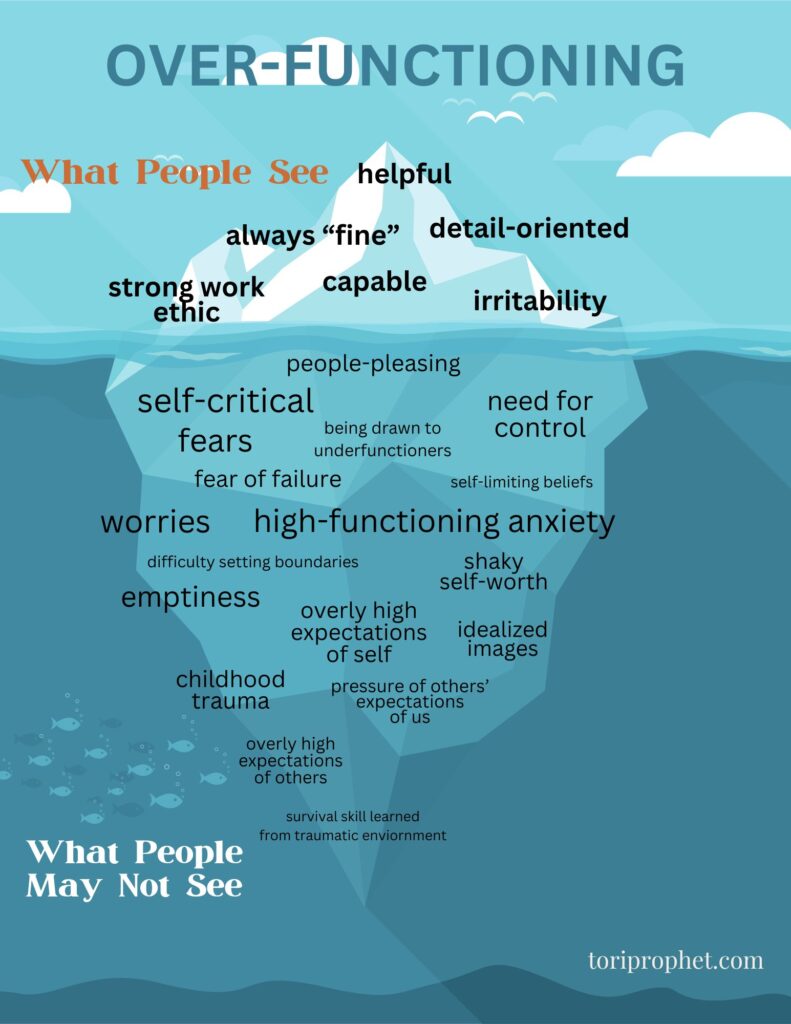
Motherhood is a beautiful journey filled with love, joy, and unforgettable moments. However, for many mothers, it can also be overwhelming and exhausting. The constant demands of caregiving, managing a household, and often juggling a career can leave mothers feeling stretched thin. While it is imperative to acknowledge the need for more systemic support for parents and families, as a mindset expert, I believe in the importance of exploring the core beliefs that often contribute to this overwhelming cycle and provide strategies to help overwhelmed mothers find balance and prioritize self-care.
Understanding the Core Beliefs:
- I Don’t Matter: Many overwhelmed mothers have a core belief that they don’t matter as much as their family members or other responsibilities. This belief can lead to neglecting their own needs in favor of meeting others’ needs.
- Others Don’t Value Me: Feeling undervalued by others can further exacerbate the sense of overwhelm. Mothers may believe that their efforts are not appreciated, leading to increased frustration.
- I Need to Do It All Myself: The belief that one must do everything on their own can be a significant source of stress. Over-reliance on oneself can lead to burnout and exhaustion.
- My Worth Is My Work: Placing one’s self-worth solely on their achievements can create a never-ending cycle of overworking and perfectionism.
Identifying the Key Pattern:
Overwhelmed mothers often ignore their own needs while constantly trying to meet the needs of others. They become capable, over-functioning individuals who rarely ask for support or do so in a way that leaves them feeling isolated and dissatisfied. This chronic under-support, combined with unreasonably high standards and expectations, can lead to a constant feeling of overwhelm.
Overwhelmed mothers often adopt a set of behaviors that perpetuate their sense of overwhelm. They become problem-solvers, appearing so capable that others assume they can handle it all. They may structure their lives in ways that are hyper self-sufficient, prioritizing work over play and connection. This overwork can lead to unhealthy patterns such as a starve/binge cycle (skipping meals/overeating) and a simmer/explode cycle (strong feelings are kept under the surface, only to erupt when stressors become unmanageable.
The Role of Trauma:
It’s important to recognize that this overwhelming cycle often results from past traumas, as mothers may be engaging in this pattern to regain a sense of agency in their lives. Often, the coping mechanism we learned in order to survive a traumatic childhood, becomes the go-to pattern in adulthood.
The Path to Presence:
Breaking free from the cycle of overwhelm requires being connected to and identifying one’s feelings and needs, both mentally and physically. Articulating needs for support and connecting to self and others on a deeper level are essential steps. Shifting from external validation to internal self-worth is also crucial on this path to presence.
One of the most important lessons for overwhelmed mothers is to learn the art of self-care and setting boundaries. “Rest before you are tired” is a mantra that encourages mothers to prioritize self-care before they reach the point of exhaustion.
Supporting Skills:
Developing essential skills such as showing appreciation, effective management (cooperating and delegating), improving communication and conflict resolution skills, and setting healthy boundaries can help overwhelmed mothers regain balance in their lives.
Overwhelm and overworking are common challenges for many mothers, but they don’t have to be the norm. By recognizing and addressing core beliefs, patterns, and past traumas, overwhelmed mothers can embark on a journey to presence, self-care, and balance.
If you are an overwhelmed mother, chances are you will be interested in my course, The Motherhood Code: Unlock the Code to a Fulfilling Motherhood Journey, a course designed especially for mothers who are tired of navigating these challenges alone.
